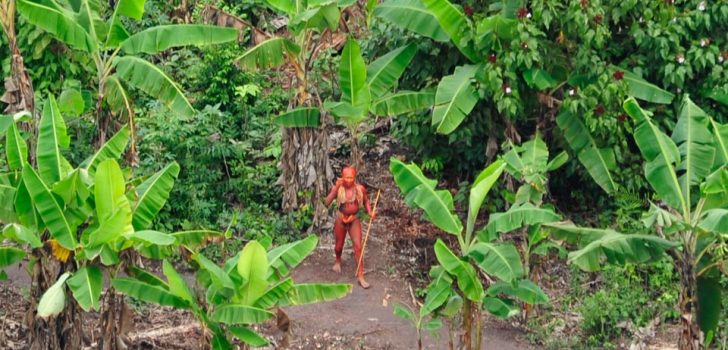Despite having never been exposed to antibiotics, the common cause of resistance development, an isolated Amazonian tribe has been found to have the condition according to a paper from the New York University School of Medicine.
Researcher Maria Dominguez-Bello has been studying a remote tribe located deep in the jungle of Venezuela since their discovery in 2008. Upon hearing of the discovery she immediately contacted authorities, requesting permission to study the Yanomami tribe before they had been exposed to modern medicine.
“This information is important; because it will give us some light on what are the bacteria we are missing, what bacteria are we losing,” she says. “We need to get a better understanding of the microbiota in this community of hunter-gatherers before they are lost.”
After 2 years spent getting the proper permits and an 11-month delay when Dominguez-Bello’s lab in New York City was closed due to damage from Hurricane Sandy, she and her colleagues eventually sequenced the Yanomami gut bacteria RNA in their labs to compare it with samples from industrialized Americans and rural Guahibo Amerindians of Colombia and farmers from Malawi.
When they compared the sequences, they found that the Yanomami have “significantly higher diversity than other populations,” including high amounts of Prevotella, Helicobacter, Oxalobacter, and Spirochaeta bacteria for example. These are absent or much reduced in industrialized humans. The medical workers also found that although the Yanomami had high levels of parasites, they were remarkably healthy and did not suffer from autoimmune disorders, diabetes, high blood pressure, or heart disease.
Microbiologist Gautam Dantas of Washington University in St. Louis also performed analysis on the Yanomami gut and oral samples, looking for antibiotic-resistance genes. The researchers cloned bacterial DNA from these samples and tested whether any of their genes could inactivate natural and synthetic antibiotics. Their findings from the Yanomami bacteria had nearly 60 unique genes that could turn on and rally to fend off antibiotics, including a six genes that could protect the bacteria from synthetic antibiotics. This is extremely worrying, Dantas says, because researchers have thought that it would take bacteria longer to evolve resistance to human produced antibiotics not found naturally in the soil.
The revelation is concerning because it indicates that “antibiotic resistance is ancient, diverse, and astonishingly widespread in nature – including within our own bodies,” says anthropologist Christina Warinner of the University of Oklahoma. “Such findings and their implications explain why antibiotic resistance was so quick to develop after the introduction of therapeutic antibiotics, and why we today should be very concerned about the proper use and management of antibiotics in both clinical and agricultural contexts.”
Microbiologist Justin Sonnenburg of Stanford University, co-author of the forthcoming book The Good Gut: Taking Control of Your Weight, Your Mood, and Your Long-term Health says “The big message is we in the Western world have lost the diversity in our microbiota. We have to study these groups to figure out what we lost, what these microbes do, and how we get back to a healthy microbiota.”
Stay Connected
